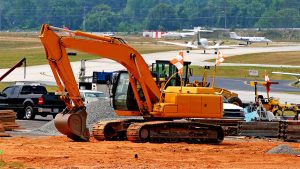In the wake of a court decision against the City of Winnipeg’s impact fees, developers and real estate industry advocates are now looking to work with the city to plan its growth.
“It was a complete break with past traditions and I think the building and development community were concerned about the future growth of the city,” said Mike Moore of the legal challenge he helped launch when he was president of the Manitoba Home Builders’ Association and a consultant to the Urban Development Institute.
Moore eventually saw the case through, even after retirement.
He explained for decades the city and the development community had met every few years to plan growth and determine fair contributions. But Mayor Brian Bowman halted that process.
“The mayor made it clear it was his intention to bring in developer fees and that was the end of discussions,” said Moore.
The impact fee came into effect in May 2017. It imposed a development cost charge of $54.73 per square metre of floor area, payable when the builder takes out a building or development permit. The fee applied to some new residential properties in the city.
The fees prompted legal action in 2017 by Ladco, the Urban Development Institute, the Manitoba Home Builders’ Association, Ridgewood West Land Corp. and Sage Creek Development Corporation. Their complaints were heard together.
After a three-year court battle, Justice James Edmond sided with a group of developers and homebuilding advocates, stating although it is reasonable for the city to try and justify the fees with its charter, their arguments fall short.
The courts ruled with the developer groups, calling the fee a “constitutionally invalid indirect tax.”
The courts have ordered the city to refund all the nearly $30 million in impact fees plus any interest it had accrued.
Moore said the bylaw saw growth pushed outside the city in areas beyond the Perimeter Highway where the fee wasn’t imposed. He explained there is no shortage of land in the region, but that land must be serviced for growth to happen.
“Let’s sit down and plan and discuss who should pay for what,” said Moore. “We never said we won’t pay, just that we don’t want this formula. It’s not fair to the homebuyer, the builder or the developer. I’m obviously happy about the outcome and I’m relieved that it’s over. Hopefully for the city and the capital region we can now plan how to grow properly. I have children here and I want them to grow up and be part of a good and strong city and capital region.”
Lanny McInnes, the current president of the Manitoba Home Builders’ Association, said he is eager to work with the city once the fallout from the legal challenge has completely settled.
“Getting clarity in terms of the city’s approach with the impact fee was key because in our opinion it was an indirect tax,” he said. “Coming up with an approach for sharing cost that works for industry and the city is the next step.”
He explained a draft order outlining how the court decision will be implemented and the fees being refunded is still ongoing.
“Until that is solved, we are in a holding pattern,” he said. “Our expectation is once that’s clarified we are ready to sit down with the city anytime to start working on this, but we understand they want to have it clarified, so everyone knows the starting point. We are ready to work with the city on how to move forward with what’s fair in terms of cost sharing and what will take us down a more sustainable path.”
When asked by reporters about the case, Mayor Bowman gave little ground.
“We now have a judicial decision which confirms that imposing an impact fee is lawful and in fact growth in the city is not paying for growth,” Bowman said. “In the court’s technical reading of the bylaw itself, while lawful, was that it was overly broad in how fees could be invested and that obviously is disappointing news.”
Follow the author on Twitter @RussellReports.











Recent Comments
comments for this post are closed